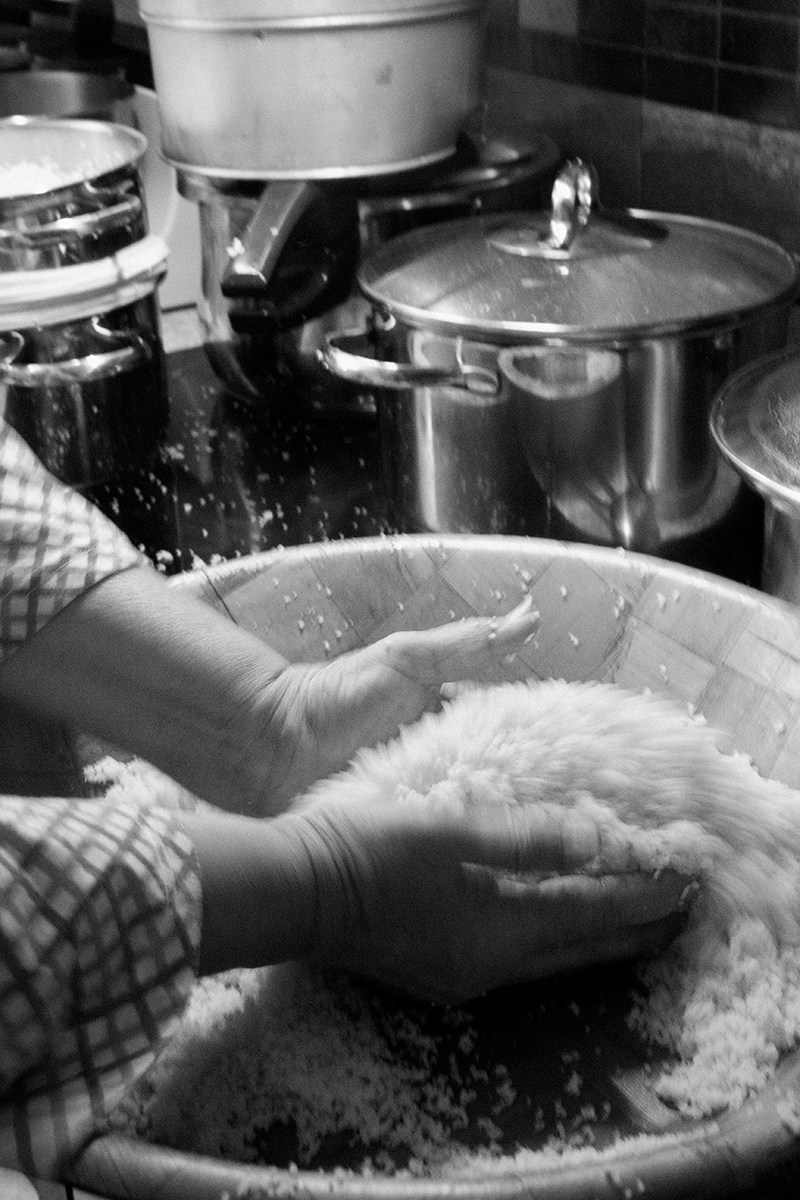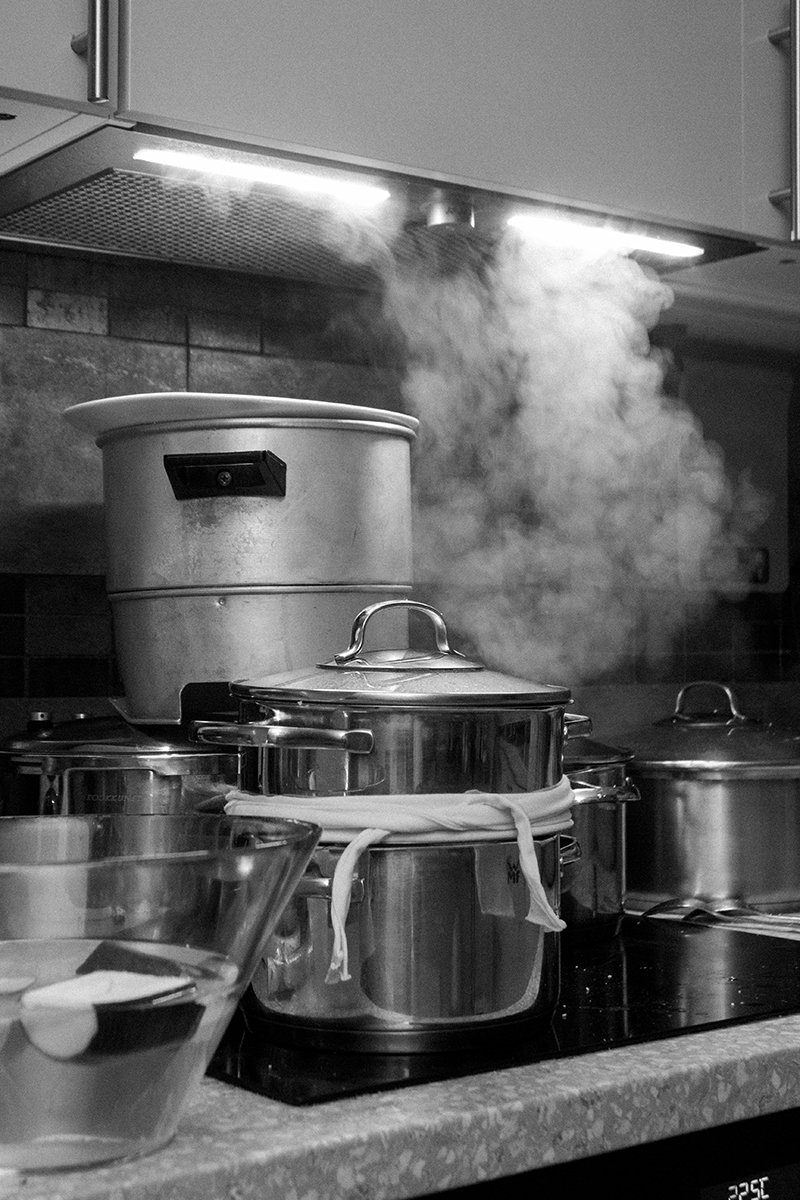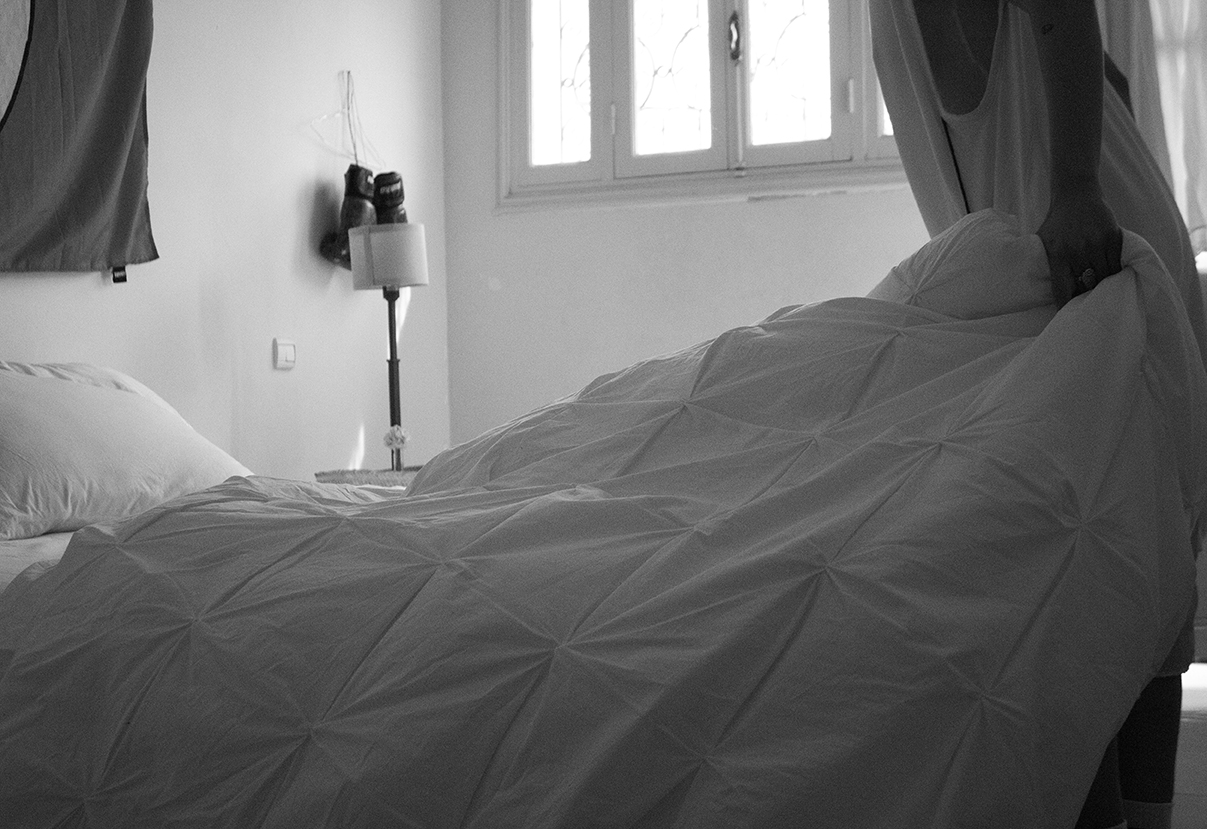Chronicles, Issue 03, Morocco
But First, Let’s Eat: The Kitchen as a Space for Uncomfortable Conversations

A tomb of hugs and kisses and cries
Knife fights and suicides and homemade fries
Knife fights and suicides and homemade friesI’ve thought long and hard about how personal I wanted this personal essay to get. And to share this with you, my commitment to living authentically was thoroughly put to the test. Going back and forth between my safety and my truth, I knew that in order to stand in the latter, I’d have to challenge the first. The result of that inner battle is these thoughts on kitchens as a space for uncomfortable conversations—a place of friction and connection, of oppression and resistance. A place of frustration and love, tension and relief, of uncomfortable but necessary conversations.
Women have historically gathered in kitchens—not only to cook but to build, share, and resist. The kitchen as a space offered possibilities for political and personal congregation and conversation. Although kitchens were initially labeled and instrumentalized as a woman’s domain, like a tool of oppression, this particular space in the house became, for some, a place of survival, empowerment, and cultural transmission.
I remember how، at all family gatherings, I’d find refuge with the women in the kitchen. There, my hands were kept busy. I could zone out or tune in to conversations at will. There was joy and laughter and, most importantly, movement. Women would walk in and out of the kitchen, stirring pots, folding pastries, and scrubbing the continuous flow of dishes. We discussed the best ways to serve the food, asked about family members we hadn’t seen in forever, and reminisced about past social gatherings. I can’t help but wonder if my sisters and cousins will be able to keep this tradition alive. I wonder the same for myself as our lives become increasingly scattered.

I’m standing in my friend’s apartment kitchen in Brooklyn, New York when I bring up the fact I’m writing a piece on intimacy and difficult kitchen conversations. She asks me for testimonies, and I realize that, although the feelings are strong, my memories are fragmented and form much less of a cohesive storyline than I thought they would.
As a result, revisiting these splintered memories shows to be a cruel process. Like in an Instagram Reel, images flash before my eyes in no particular order: stirring through a pot of mushroom soup, calling an ambulance, the scent of parsley, a firm hug, an even firmer “no,” silence. Stowed away like Tupperware in the cupboard of my mind, I’m unsure what will resurface next—the anticipation of triggering recollections stops me in my tracks.
For me, the kitchen was always a controversial place to be. Partly because I never truly felt like a woman. Not in the way I felt my family wanted me to. And although I enjoy spending time in the kitchen, I have always been conflicted by how my presence further enforced the gender role I was so forcefully trying to defy. Besides, unlike in some of our acquaintances’ homes, the kitchen in my family’s home was never exclusively for women.
After my mother got sick, my dad took charge of the entire household, and as my mom’s rghayf and tajines made way for my father’s bissara and chicken wings, my stomach was letting me know that gender and its assigned roles are a social construct.

Growing up, the limited hours we had together as a family were often spent in and around the kitchen. The quality of that time spent in that space and its contrast with how most of my (white) peers spent their time there taught me that people relate to food and cooking differently. For some, it was a practical necessity which I would come to call functional eating – like that time when my ex’s father asked me how many potatoes I eat – while for others, food was a way to connect, to belong to a culture and collective history.
In my case, my parents both worked long days as teachers, so dinner time was not taken lightly. Mama would go straight to the kitchen after work, and my baba would start writing the grocery list, meaning that any after-school conversation was necessarily going to take place in the kitchen.
I remember my mom teaching me about Isa and Musa and Ibrahim as I told her what I learned in school about Jesus and Moses and Abraham. As a Muslim child in a Christian school, our kitchen talks were filled with existential questions, feeding and cultivating an insatiable curiosity and hunger to question everything I knew to be true or given. A journey that would lead me here, where I am today. The vulnerability it took everyone in that space to make it this inviting stuck with me as I grew older and came to have my own kitchen and rapport with my chosen family within it.

in my kitchen no one goes hungry
not for acceptance
nor for love
As a matter of fact, even now, whenever I think of a remotely significant conversation that needs to be had, the imaginary scene takes place in a kitchen. And I can’t help but wonder what it is about kitchens that make otherwise gut-wrenching conversations about who I am, what I want, and what I need all of a sudden seem so feasible. Is it the soothing, hissing sound of the kokot? The smell of freshly cut naanaa from the garden?
Either way, this cozy and highly sensory area in the house has always been a playground of gentle triggers, muscle memories, and nostalgia. My parents and I would spend hours there, talking about lessons from the past and dreams for the future. At times we were tempted to reveal our secrets, and in these moments, my parents suddenly felt a little more tangible and, dare I say, human?
The day before my parents left for their new lives in The Netherlands sometime in the late ‘80s, my father burnt all his writings, photos, and books. “I couldn’t leave any trace. I was committed to building this new life.” In the depth of one of my depressive episodes, paralyzed by the overwhelming sense there was no place for me in this world, my father recited some of his poems to me as we dried off whatever remained of our dinner’s dishes. “In this life, you can start over as many times as necessary. Don’t let anyone ever tell you otherwise.”
There are still so many uncomfortable conversations to be had in that same kitchen. Every day I wonder when those conversations will materialize. But never where. And when my time comes to start over, I hope my words will be pancake-shaped and smell like honey and butter. I hope the taste will remind them that although they don’t understand me, we come from the same roots and we will figure it out.
But first, let’s eat.

“What can I do?”
“Check on the oven”
my shoulders drop
there’s contact
“5 more minutes”
How can I not fear what I know to be true?
It seems to me that the more I come into my own,
the further I drift away from you
Our roads intersect
less and less
but before I get lost,
the kitchen, our final roundabout
I clench my jaw, you chop away
better not swallow my tongue
“Hey, I was wondering…”
“Yes?”
you don’t look up
you are not even aware
our lives are about to change
“What if I told you I’m not who you think I am?”
“What do you mean?”
Indeed, what do I mean?
Have I ever been anything but myself?
“Is this another one of your strange theories?”
I wish
“Maybe.”
depends on your answer.
